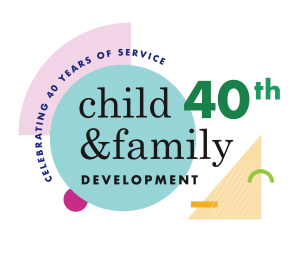By Lindsey Anuzis, MA, LCMHCA, NCC, RBT ~ Child and Family Development
Stress levels are elevated across the board for adults and kids alike, and excess stress as well as long-term stressful conditions can disrupt performance and cause a variety of emotional, behavioral, and physiological problems. While children are resilient, they are not immune to stress.
Adolescence in particular is a time of immense change, and there is an increase in stress-related psychological vulnerabilities during the crucial stage of adolescent brain development. Even without COVID in the mix, this developmental time is associated with major changes in emotional and cognitive functions as well as a rise in stress related psychological disorders such as anxiety and depression. Excessive stress and maladaptive coping strategies during the teen years can have a harmful impact upon both physical and mental health later in life.
While it may seem like stress is unavoidable with COVID 19 currently impacting all facets of life, there are some solutions and ways to help your children and teens!
1. Model healthy coping skills
Regardless of their age, children look to their parents for reassurance and guidance. In modeling your own healthy coping skills, your kids will learn effective and healthy ways to deal with their own stress rather than turning to harmful or maladaptive coping strategies and risky behavior. For ideas on coping skills- check out my blog post on “Stress management and coping skills for parents during COVID- 19”.
2. Give your kids permission to feel… and validate their experiences!
Times are tough, and we have all been in a heightened state for months (that sometimes feel like years…), which can be both physically and emotionally exhausting. Kids may become more irritable, or emotional than normal, as they are trying to make sense of their own circumstances. We as a society have been conditioned to deny, and cover up our negative emotions (toxic positivity), which can be even more damaging in the long run. It is important to embrace the emotions your kids are experiencing, even the tough ones, and validate their experiences so they feel seen and heard.
3. Understand that your kids may be grieving
(Check out my blog on grief and secondary losses for more specific info!) Grief is a normal reaction to significant change or loss. In a time of extended quarantining, social/ physical distancing, and sheltering in place, it is possible there are milestones and experiences your kids may have missed out on! They may be disappointed by the unmet expectations they had for the spring and summer months prior to the pandemic, and that is okay! Responding with empathy towards them and their experiences will reassure them that they are not alone.
4. Provide structure and routine
Being at home for an extended period without leaving for school, work, or extracurricular activities can make the days feel like they are blurring together. The uncertainty of what is coming next can make it harder to maintain motivation, and can even lead to decreased energy. Kids and teens are adaptable, but thrive with structure. Creating a daily routine or schedule for your kids will help with maintaining structure and expectations throughout their day in addition to redirecting their attention. This can include time for school work, physical activities, time outdoors, scheduled time away from screens (this is a big one!), even scheduled time for leisure and fun activities will be beneficial. To ease transitions between scheduled activities, especially for those little ones (or those doing kindergarten and elementary school remotely), utilizing a contingency contract (first/then) can help! This tells the child that first they must do work, or some other non-preferred activity, and upon completion of that, then they can move on to a new or reinforcing activity. Example: first complete your math problems, and then you can go ride your bike. This will also help them to manage expectations as well!
5. Utilize this time as an opportunity to foster and improve connections
I am sure we can all agree that COVID 19 stirs up a lot of negative emotions, however, it can be beneficial to reframe and recognize some of the positives as well! For example, depending on how old your kids are… these last few months have likely been the longest time you have spent consistently together since they were babies! This extended time at home provides a wonderful opportunity to learn more about your family, and children. Humans need, seek, and crave connection, it is literally embedded in our DNA, and this quarantine can often feel like isolation. But it doesn’t have to be! Utilize this time to intentionally work on strengthening your relationship with your kids; learn something new about them, their thoughts, feelings, and their interests. Encourage them to get to know you on a deeper level as well! Allowing yourself to be vulnerable with your kids, will improve your communication, and their ability to embrace vulnerability as well! Whether they overtly mention it to you or not, they will be grateful for the additional support and connection.
Lindsey Anuzis, MA, LCMHCA, NCC, RBT is a Licensed Clinical Mental Health Counselor Associate as well as a Registered Behavior Technician at the Midtown and Pineville locations of Child & Family Development. Lindsey obtained her Bachelor of Science in Psychology from High Point University in High Point, NC and her Master of Arts in Clinical Mental Health Counseling from Wake Forest University in Winston Salem, NC. She provides ongoing therapy services to preschoolers through young adults to address concerns related to mood, behavior, and social skills. Her areas of clinical interest include stress and coping skills, life transitions, grief and loss, self-esteem, identity concerns, bullying and relationship issues, wellness counseling with a mind body emphasis and trauma. Contact us to schedule an intake appointment with Lindsey today.
Child & Family Development

Locations:
Mitdtown:
4012 Park Road, Suite 200
Charlotte, NC 28209
704.332.4834
Pineville:
11940 Carolina Place Parkway, Suite 200
Charlotte, NC 28134
704.541.9080
Website | Facebook | Instagram | Twitter




